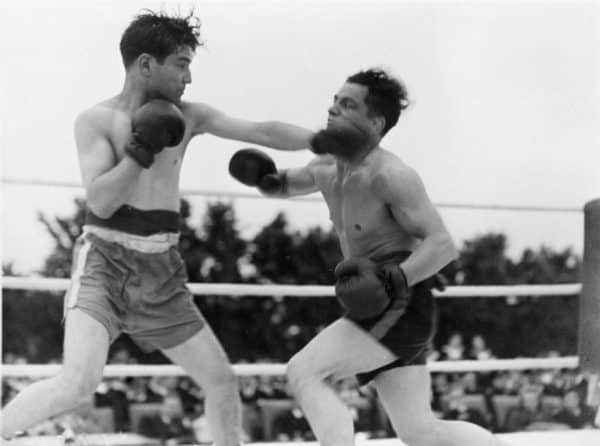
 Mixed martial arts has a reputation for being violent, but a new Canadian study says boxing is actually a much more dangerous sport.
Mixed martial arts has a reputation for being violent, but a new Canadian study says boxing is actually a much more dangerous sport.
The study, conducted at the University of Alberta’s Glen Sather Sports Medicine Clinic was published in the November issue of the Clinical Journal Of Sports Medicine.
Lead author Shelby Karpman and researchers Leah Phillips, Ziling Qin, Doug Gross, in addition to Patrick Reid from the Edmonton Combative Sports Commission reviewed post-fight records from 1,181 MMA fighters and 550 boxers who fought in Edmonton between 2000 and 2013. They found that 59.4% of MMA fighters suffered some form of injury in their bouts, much higher than the 49.8% injury rate for boxers. But the study found that the boxing injuries were much more severe, and that boxers were much more likely to experience a loss of consciousness from a fight (7.1% vs. 4.2% for MMA fighters).
“Yes, you’re more likely to get injured if you’re participating in mixed martial arts, but the injury severity is less overall than boxing,” said Karpman. “Most of the blood you see in mixed martial arts is from bloody noses or facial cuts; it doesn’t tend to be as severe but looks a lot worse than it actually is.”
MMA, which gained popularity in the late 1990’s and early 2000’s has had a mixed history in terms of legality. In Canada, the sport was formally decriminalized in 2013 with the introduction of Bill S-209, which gives individual provinces the authority to legalize it. The sport is illegal in countries such as Norway and France, but is regulated by the Association of Boxing Commissions in the United States. MMA is legal in 47 states, but still faces opposition in the key New York market. The Ultimate Fighting Championship (UFC) recently filed a legal challenge to the state’s ban, a move that drew the ire of Senator Liz Krueger.
“New York has consistently rejected MMA, and the Legislature is right to maintain the ban on this extremely violent activity,” said Krueger. “MMA creates a culture of violence and misogyny, increases long-term healthcare costs for fighters who will suffer dementia and other health problems caused by traumatic brain injuries, and it will not lead to significant increased economic activity if legalized. This lawsuit is just another example of UFC’s arrogant disregard for the best interests of New Yorkers.”
But in an op-ed for the New York Times in 2011, David Zinczenko, then editor of Men’s Health magazine, said New York state simply had it wrong about MMA. Zinczenko noted that he was initially on side with the ban, pointing out that two men trying to beat each other to a pulp isn’t exactly in keeping with his employer’s health mandate. But Zinczenko, whose brother Eric trained as an MMA fighter, says he changed his mind about the sport when he was exposed to what he felt was better information.
Zinczenko says the extra padding of sports like hockey and football create a false sense of protection. The truth, he says, is that all the perceived safeguards simply set an athlete up for more damage.
“Boxing’s “protective” padding, coupled with its 12-round bouts and rest periods, means the boxer is subject to dozens of brain-jostling head blows in each fight,” he said. “In M.M.A., most bouts end in a wrestling match, with one opponent forcing the other into submission; only 28 percent of all M.M.A. bouts are decided by a blow to the head, according to a study published in The British Journal of Sports Medicine.”
Back in Alberta, Karpman says his study highlights the importance of looking at data, not the blood streaming from someone’s nose.
“I always say if you’re going to ban a sport, you need statistics. Just watching mixed martial arts twice on TV does not cut it. And even if you ban a sport, you’re not going to stop it. You’re just going to take it underground where they’re not going to receive medical care.”
Leave a Reply
You must be logged in to post a comment.



 Share
Share Tweet
Tweet Share
Share




Comment